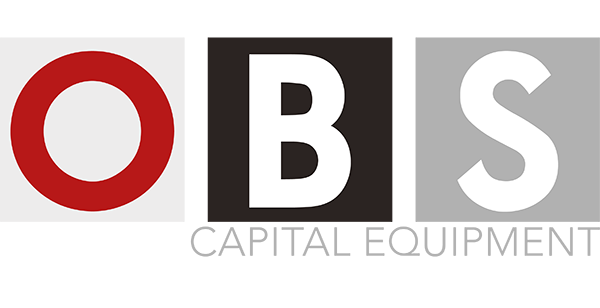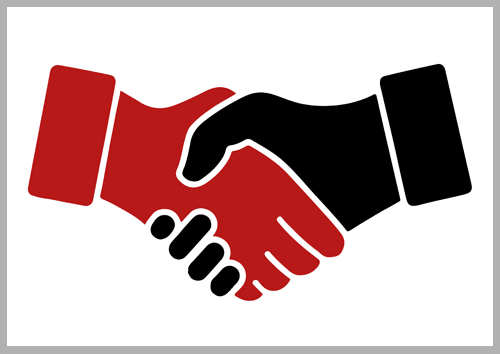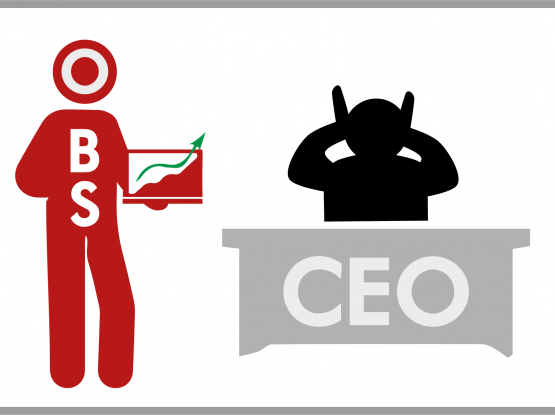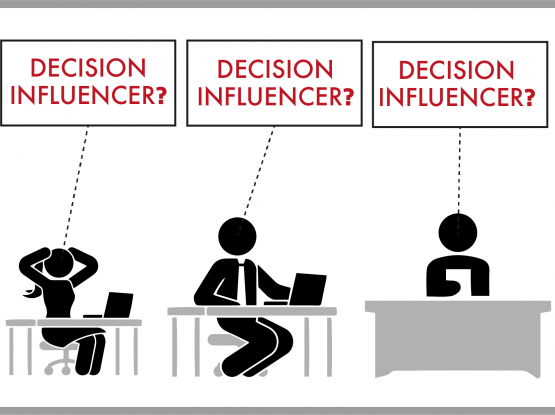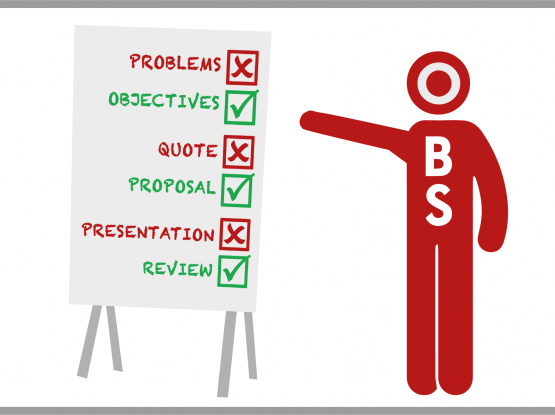Despite much of the depersonalising processes of the business world (voice mail, email, restricted access, websites, formal criteria, budgeting processes, national agreements) in significant material handling purchases, people still buy from people.
Material handling salespeople must work constantly to understand the personal and professional objectives of their key clients. This is accomplished using interpersonal skills along with business skills and systems. It is done by observing, asking questions, listening, and building rapport with these key individuals.
If clients don’t like, believe, understand and trust a salesperson proposing a significant purchase, they will find a reason and a way to buy from someone else. They will seldom divulge the true reason for losing the order to the unfortunate salesperson and may not even admit it to themselves.
Here we explore this subject and offer effective methods for salespeople to build personal, professional relationships:
1. WHAT MAKES CLIENTS LIKE, BELIEVE, UNDERSTAND & TRUST SALESPEOPLE IN THE MHS ENVIRONMENT?
There are always exceptions but generally clients like salespeople that:
- Show genuine interest, asking open-ended questions and listening, instead of just talking
- Have an appearance that seems appropriate to the client
- Are interested in some of the same things
- Help make their job easier
- Have speech patterns and activity paces similar to their own
- Don’t patronise them
- Share something with them such as an activity or lunch
- Show the client in a positive light to their organisation and boss
- Have an appropriate sense of humour
Clients believe salespeople that:
- Do some research before making claims or recommendations
- Make claims that are confirmed by their own experiences
- Don’t speak badly of their competition
- Show proof statements or evidence
- Are detail oriented, in a way the client can understand
Clients understand salespeople that:
- Use words which clients understand, not jargon they don’t understand
- Walk clients through discussions without patronising them
- Create opportunities for clients to see it with their own eyes
- Support statements with appropriate visual aids
Clients trust salespeople that:
- Show up on time
- Give a strong handshake and look clients in the eye
- Meet commitments, whether important or small
- Don’t exaggerate
- Resolve problems quickly
- Always follow through
2. OBSERVATIONS, QUESTIONS, LISTENING & RAPPORT
Salespeople should observe many things with clients, beginning even before the initial contact, such as:
- What can I learn from their website? Or from their building’s appearance?
- What’s the tone of the client’s reception personnel? Friendly? Professional? Impersonal?
- How protected or isolated are primary contacts and decision influencers?
During initial meetings, salespeople should observe:
- Is the client on time and respectful of the salesperson’s time?
- Does the client give their undivided attention?
- What is in the client’s office? What does the client seem to take interest in? What seems to be the appropriate attire? How organised is the client?
- How rushed is the client? Where is the office within the building and in the apparent pecking order?
- Is the client detail-oriented or interested in the bigger picture? Or both?
- What seems to be the primary method of communication?
- What’s the client’s sense of humour like?
During on-site tours, the salesperson should observe:
- How the client treats others in the organisation and how is the client treated by others?
- What interests the client on-site?
- What are the areas of responsibility?
- What’s the condition of the site and demeanour of the employees?
In general, the salesperson should observe the best way to relate to the individual and how the individual interacts within their organisation. The salesperson should also observe whether the client’s way of conducting business is compatible with their own in the long term.
Other than the business objective questions discussed in other parts of Objective Based Selling, salespeople should consider relatively personal open-ended questions such as:
- “How long have you been with the company?”
- “What do you like about working here? About your job?”
- “What’s the most difficult part of your job? Of working here?”
- “What’s been your favourite job and why?”
- “What kinds of things do you in your spare time?”
- “What do you do when you’re not working?”
- “Where are you from?”
If the salesperson sees a personal item, or item indicating outside interests, or awards, these can provide an opportunity to ask appropriate questions such as:
- “Tell me about that picture/award/plaque/item”
A note of caution; the salesperson must constantly be sensitive to the client’s desire or willingness to discuss such matters.
On more professional topics, questions might include:
- “What is your area of responsibility?” (NOTE: do not say “What’s your job title?”)
- “What other material handling projects have you been involved with?”
- “What has your experience been with our company?”
The general idea of personal, professional questions is to find common ground, mutual interests and most importantly, find out how the client wants to do business. The salespeople who are most successful are those who do business the way the client wants to do business, both personally and professionally. If there is a basic incompatibility in the way the two parties conduct business then the salesperson must evaluate how a successful adaptation can be made.
The salesperson must listen for clues about how the client wants to do business. Not only are the words important, but the client’s tone, style, implications and interest. The salesperson listens for clues regarding the best way to relate to the client and build personal, professional relationships.
The most successful salespeople build rapport with their clients and go on to develop a true friendship with a small number of these clients during their career. These close relationships will often include spending significant time outside a strict business environment. However, this is not the general goal for salespeople when developing personal, professional relationships, because genuine friendship is too rare and cannot be planned. Salespeople, however, can have a goal of developing rapport with key decision influencers at targeted businesses. That’s the goal of observing, questioning, listening and finally building rapport into this level of relationship. If it can be done, significant business will most likely be achieved with the client.
3. THE TWO CLIENT TYPES: PROFESSIONAL or PERSONAL
While generalisations about people are to be used with caution, there are two basic extremes of individual client types which are helpful to examine.
Professional-type clients are not interested in making any significant personal connection until the salesperson has proven himself professionally. In other words, the salesperson must earn the right to have a personal conversation or relationship. A salesperson trying for a personal conversation in an initial meeting with this client-type will be rebuffed. If the attempt is pursued, the salesperson is seen as insincere and further access is difficult. Signs of this type for the salesperson to observe can include an office without many personal items or a somewhat brusque, get-to-the-point manner. Short or non-answers to personal questions is another danger sign, as well as short appointments.
At the other end of this continuum are the personal-type clients. These individuals do want to make a personal connection first, before doing significant business. They want to get to know the salesperson personally before deciding whether they trust them enough to do business with them. Indications of this type may be an office with lots of personal memorabilia; expanding on answers to questions of a personal nature; asking some personal questions of the salesperson and looking for connections. Salespeople dealing with this type must slow down and look for that personal connection. It may take time and the salesperson needs to determine whether the eventual payoff is worth the effort. On those occasions when a personal connection is not made, a good strategy is to find someone else in the salesperson’s organisation who may be able to make a better personal connection. A second strategy is patience.
Most client contacts are not at the extremes of these two types, but somewhere in the middle of the professional-personal continuum. Assessing this and acting accordingly helps the salesperson build rapport
4. THE CLIENT’S ULTIMATE OBJECTIVE: THEIR EGO!
Just as every viable material handling project has time and money objectives, every individual has ego. How individuals view themselves impacts on their self-confidence and their style in dealing with others. Two extremes might be an individual with a strong self-concept, sometimes to the point of arrogance and another who has a low self-concept, even to the point of low self-esteem. There are no easy ways to determine the self-concept of an individual, however, salespeople should always be aware that they will be most successful in those situations where they make an accurate assessment of this and treat clients accordingly.
DOWNLOAD THE FULL ARTICLE AND MORE HERE.
